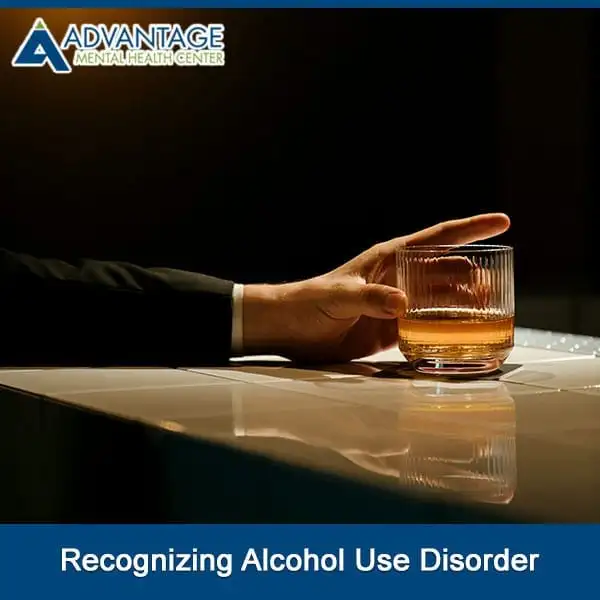Whether it be a parent, cousin, sibling, or even your own child, watching a loved one consume alcohol to excess may be one of the most difficult things someone will ever face. Not only is their concern for the loved one’s general well-being, but also apprehension their behavior may be a sign of a more serious problem – alcohol use disorder (AUD), more commonly known as alcohol addiction.
Signs of Addiction
Differentiating between normal social drinking and alcohol addiction can be difficult, so family members should become familiar with the signs of addiction. According to the Centers for Disease Control and Prevention, an individual is considered to be heavily drinking when he or she has a certain number of drinks in a week (8 for women, 15 for men). Many adults may consume this amount of alcohol over the course of a week by having a glass of wine after work or a few drinks with friends on the weekend. However, what if the person is drinking this amount in a short period of time? The amount of alcohol someone’s body can process and absorb over a two to three-hour period is limited, making excessive alcohol consumption potentially dangerous.
In addition to the amount of alcohol someone drinks and when be cognizant of behaviors that might suggest there is a problem. This may be an apparent high tolerance for alcohol, seeking out functions where drinking is “appropriate” (think of a family barbeque or holiday party), or even making efforts to hide one’s drinking from others. Behaviors such as these can be indicators of alcohol addiction, which can have an adverse effect in every area of functioning, including physical and mental health, financial security, and personal and professional relationships.
Even after seeing behaviors such as these, it may be difficult to know whether a loved one is experiencing alcohol addiction. However, there is one warning sign that is more telling than most others – symptoms of withdrawal. When in a situation where drinking is not possible, if a loved one who frequently drinks begins to experience nausea, headaches, tremors, anxiety, or other unexpected symptoms, he or she is likely experiencing symptoms of withdrawal and should be seen by a medical professional right away.
Seeking Treatment
Before approaching a family member about seeking treatment, it is important for friends and family to remember to be supportive and understand addiction is not a choice. Also, avoid being accusatory and focus on how the addiction has impacted you personally. Taking this approach may make your loved one more willing to consider getting help.
When should you talk to your family member about getting help? It is completely acceptable to talk to your loved one about seeking treatment before he or she hits rock bottom. However, he or she may be far beyond that point before you realize the severity of their addiction.
Treatment Options
There are several treatment options with varying degrees of intensity making it possible for someone to have a treatment plan tailored to meet his or her needs. If a loved one seems to be in the early stages of addiction, encourage him or her to first talk with his or her primary care physician. The physician is in the best position to assess your loved one’s needs, level of addiction, and make appropriate treatment recommendations.
An important step in treating addiction is addressing the physical effects. A professional detoxification program can be indispensable in alleviating the dangerous symptoms that may be experienced when one suddenly stops drinking alcohol. This is often followed by treatment in an inpatient or possibly outpatient setting, which both provide individual and group therapy to further support recovery.
Another support for recovery is sober living programs. These are often apartments or similar settings where an individual recovering from addiction can reside with others also working toward recovery. Furthermore, recovery coaches, who are also recovering addicts, can provide guidance and support for living in the community and remaining sober.
With a properly tailored treatment plan, your loved one can receive the tools needed to cope with daily stressors without the use of alcohol. Advantage Mental Health Center takes a holistic approach to provide an individualized treatment plan to help your loved one overcome alcohol addiction.
Picture Credit: Pexels


